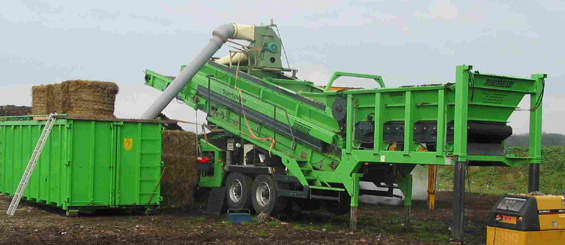 The terms biodegradable, degradable and compostable are used interchangeably, particularly when the media discusses packaging and carrier bags. Often you are led you to believe their meaning is the same but this is far from the truth. Each term has a distinct meaning and when it comes to waste management, particularly biowaste management, these meanings become essential as it will determine what the most appropriate method of recovery is. What exactly do these terms mean and how do you know which materials are suitable for your systems and processes?
The terms biodegradable, degradable and compostable are used interchangeably, particularly when the media discusses packaging and carrier bags. Often you are led you to believe their meaning is the same but this is far from the truth. Each term has a distinct meaning and when it comes to waste management, particularly biowaste management, these meanings become essential as it will determine what the most appropriate method of recovery is. What exactly do these terms mean and how do you know which materials are suitable for your systems and processes?Biodegradable
These are materials which biodegrade through the action of naturally occurring micro-organisms and do so to a high extent within a specified timeframe. These materials can be safely composted together with the organic fraction of municipal solid waste to produce compost. Compostable plastics do not hamper the composting process because they are biodegradable, disintegrable and do not affect the quality of the final compost. Compliance with the EU standard EN 13432 indicates that all these requirements are satisfied.
Further information about 'biopolymers'
[Oxo-, Oxy-, OxoBio-] Degradable
These are materials which are based on polyethylene or polypropylene with a metal based additive and will, in an undefined timeframe, fragment to smaller particles when exposed to heat or ultra-violet light but are slow to biodegrade relative to 'compostable' plastics based on other renewable materials such as starch and cellulose. Degradable plastic is hydrophobic (has little or no affinity for water) and may attract other hydrophobic particles - including pesticides and heavy metals - which can lead to bioaccumulation of toxic substances. 'Fragmentable' is a less misleading way to describe these materials.
Up to now, no degradable plastic has managed to get certified as 'compostable' according to EU harmonized standards on biodegradability and compostability [link to next page] and thus are not suitable for composting processes, particularly those working to produce quality composts that meet the British Standards Institution's Publicly Available Specification for Composted Materials (PAS 100). This plastic is also unsuitable for recycling as the additive will remain in the recyclate making it unstable. WRAP have said that due to issues over recyclability and not meeting the European Standards for biodegradability and compostability, degradable plastic is not suitable for retail primary packaging. See WRAP's 'Biopolymer packaging in UK grocery market' briefing for further information andEuropean Bioplastics's position paper on "Degradable" PE Productsand anti-littering position.
The Green Claims Code
When making a specific claim regarding packaging in the UK,Defra's Green Claims Code's recommendations should be followed.





.jpg)


